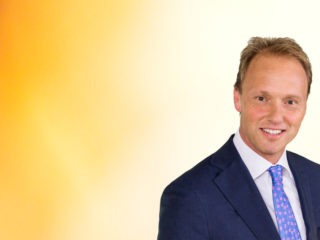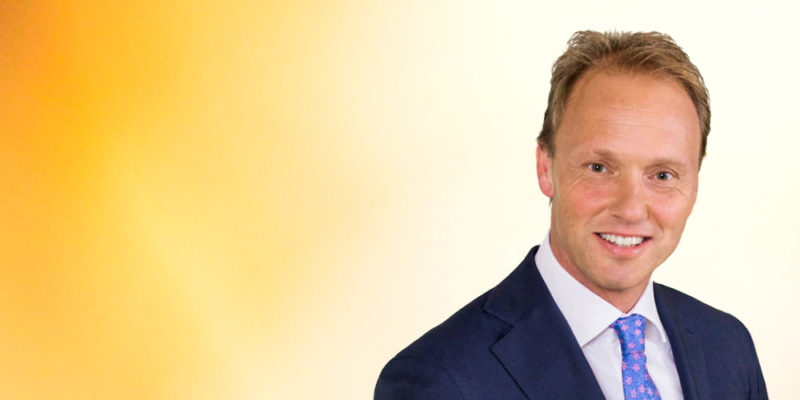
Inspired by the article series “Europe can do better”, published by United Europe and German newspaper “Handelsblatt”, the Dutch newspaper “Het financial Dagblad” has published views of eight Dutch CEOs and their visions for a joint and competitive EU. Please find following the article of Hein Schumacher, CEO of FrieslandCampina:
How do we move from a European neighborhood to European society? It may feel comfortable, but it is not sustainable. After all, the future calls for common ground on issues that are truly cross-border in nature.
To this end, I draw inspiration from business models that go beyond ‘shareholder value alone’ and therefore fit in well with Europe. Such a model is also FrieslandCampina, an international dairy company owned by a cooperative of over 18,000 dairy farmers.
When nine farmers set up a cheese factory together in 1871, they knew: ‘only I can make ends meet, but together we can make progress’. The cooperative as a form of cooperation is focused on the long term. Much has changed since that first cooperation almost 150 years ago. As a cooperative, we want to lead with sustainability, towards more nature on the land, more outdoor grazing, more energy from sun, wind and manure, to more special and other milk. I am in favor of CO2 emissions but at the level of the real market’.
In the short term, these ‘requirements’ can be sanded on an individual level. But it is precisely in this cooperative experience that diversity is a prerequisite for success for the collective in the longer term. This requires trust in each other and leadership. It is in this spirit that we must also solve the collective EU challenges together, not in each individual Member State. Think of themes such as world trade, sustainability, biodiversity and migration. It will be difficult for the Member States in the short term to surrender sovereignty on these issues, but it is a huge opportunity in the long term.
Sustainability is such an opportunity for Europe. I am in favour of pricing CO2 emissions. It is an effective incentive to reduce greenhouse gas emissions, but at the level of the real market, globally or at least at the European level. It is not really an option for each Member State, because then part of the production – including the associated greenhouse gas emissions – moves from one Member State to another.
We also need to move away from the national ‘plastics approach’: from collection to processing to reuse. Plastic is a global problem, and so we need to put a great deal of energy into collaborations such as the Plastic Pact and Plastic Summit. We must put an end to the national plastic patchwork blankets and quickly come up with a European pact.
Making the production processes in agriculture more sustainable also requires a supranational approach. The question is how common the new European Common Agricultural Policy really is. We need to move towards a European level playing field when it comes to subsidies and towards a policy that makes the agricultural sector and products primarily sustainable. In this respect, consider the sustainability aspects as a direct condition for subsidies.
It is also about good nutrition for the world. This does not require more production, but better distribution and affordability. In Africa, the population will double in the next 30 years. Current food production will not be able to feed that growing population. If we want to reduce migration from Africa, Europe will have to make a contribution to the increasing demand for food in Africa.
By reducing waste, which in some EU countries is close to 30%. But also by producing more efficiently and sustainably for export. This food improvement cannot come from one company or one country. This calls for a larger, common approach and must be the spearhead of European foreign policy.
The cooperative model of solidarity and reciprocity is deeply rooted in Europe. Not side by side, but together. That sounds good, but living together sometimes demands that it be scourged for the individual or the individual Member State. In the long term, this will benefit us all and requires courage and leadership.



